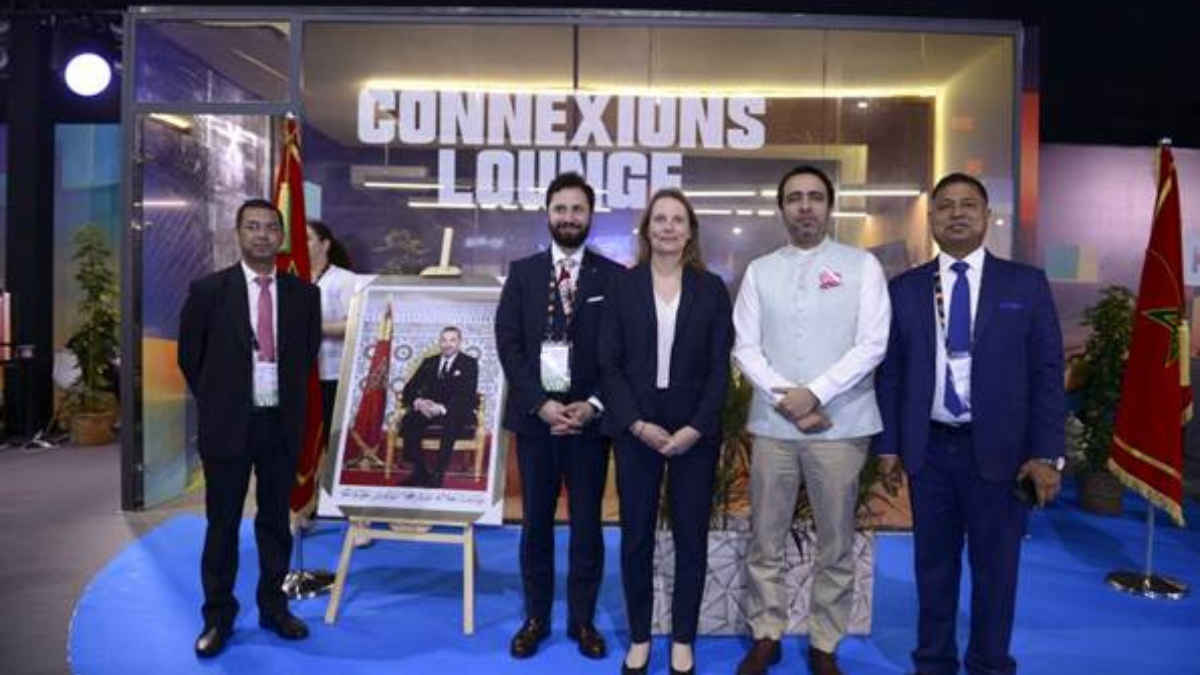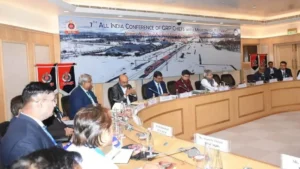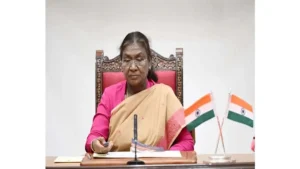Africa’s largest technology and startup exhibition, GITEX Africa 2025, recently concluded its three-day program in Marrakesh, Morocco, bringing together policy leaders, innovators, and visionaries from across the globe. The summit served as a vital platform for collaborative discussions on fostering inclusive and equitable growth in the global digital economy. Representing the Republic of India at this prestigious event was Shri Jayant Chaudhary, Minister of State for Skill Development and Entrepreneurship (Independent Charge) and Minister of State for Education, who participated in high-level bilateral meetings, panel discussions, and interactions with Indian startups showcasing their technological innovations.
India’s Digital Public Infrastructure: A Model for Global Collaboration
During his engagements at the summit, Minister Chaudhary highlighted India’s remarkable achievements in developing robust Digital Public Infrastructure (DPI) systems that have catalyzed transformative changes across various sectors of the Indian economy and society. He emphasized how India’s digital identity system (Aadhaar), digital payments platform (UPI), e-commerce network (ONDC), and healthcare initiatives have revolutionized service delivery and citizen empowerment in the country.
“India’s Digital Public Infrastructure has driven transformative changes across areas, especially through developments of digital identity (Aadhaar), digital payments (UPI), e-commerce (ONDC), and healthcare,” Minister Chaudhary stated during discussions. He further elaborated on how India is increasingly integrating advanced technologies including artificial intelligence, cybersecurity, fintech, and digital infrastructure into its skilling ecosystem to prepare citizens for future workforce demands.
The Minister specifically highlighted the success of the Skill India Digital Hub (SIDH), a comprehensive digital platform for the skilling ecosystem that has successfully onboarded more than one crore users in just over one and a half years. This rapid adoption demonstrates the scalability and effectiveness of India’s approach to digital public infrastructure development.
Potential for India-Africa Technological Partnership
A central theme of Minister Chaudhary’s participation was emphasizing the rich potential for technological collaboration between India and African nations. He noted that India’s experience in developing open-source digital public infrastructure systems positions it uniquely to support other developing economies in their digitalization journeys.
“India, where the pace of digitalization is higher relative to some other developing economies, with established open-source Digital Public Infrastructure systems, has the potential to catalyze speed of digitalization in other developing countries seeking to develop such systems through collaboration and knowledge sharing,” the Minister remarked.
This perspective aligns with India’s broader vision of sharing its technological expertise and developmental models with partner nations, particularly in the Global South, to foster mutually beneficial growth and advancement.
India’s Growing Leadership in AI and Digital Innovation
Minister Chaudhary also highlighted India’s emergence as a key resource talent hub for AI professionals. According to the AI Stanford Index 2025 referenced during his discussions, India is leading with an impressive 33.39% year-on-year growth in AI talent hiring. This significant growth rate serves as a clear indicator of the concerted efforts by both the government and industry to nurture an environment conducive to AI adoption and innovation.
The Minister emphasized that these developments in AI capability, coupled with India’s robust digital infrastructure frameworks, create substantial opportunities for partnership with African nations looking to leverage similar technologies for economic advancement and social inclusion.
Bilateral Engagements: Strengthening Morocco-India Relations
On the sidelines of the summit, Minister Chaudhary engaged in a series of productive bilateral meetings with key Moroccan government officials, including:
- Ms. Amal El Fallah Seghrouchni, Minister of Digital Transition and Administrative Reform
- Prof. Azzedine EL Midaoui, Minister of Higher Education, Scientific Research and Innovation
- Mr. Younes Sekkouri, Minister of Economic Inclusion, Small Business, Employment and Skills
- Mr. Mohammed Saad Berrada, Minister of National Education, Preschool and Sports
These discussions focused on exploring synergies in artificial intelligence, research capabilities, and capacity building between the two nations. Minister Chaudhary shared insights on how digital public infrastructure can serve as a catalyst for inclusion, innovation, and equitable growth, while also detailing India’s experience in building scalable, inclusive technology solutions for public good.
These ministerial-level engagements represent important steps in strengthening the bilateral relationship between India and Morocco, particularly in the areas of technological cooperation, educational partnerships, and skill development initiatives.
India’s Digital Success Stories: Global Best Practices
India’s participation at GITEX Africa 2025 reaffirmed its position as a global leader in skilling and digital innovation. The Minister highlighted several pathbreaking Indian initiatives that have gained international recognition as scalable models for inclusive development:
- Skill India: A comprehensive national program for skills development
- Digital India: The flagship initiative transforming India into a digitally empowered society
- Aadhaar: The world’s largest biometric ID system providing unique digital identity to over 1.3 billion people
- UPI (Unified Payments Interface): A revolutionary instant payment system that processed over 130 billion transactions in 2024
- DigiLocker: A platform for issuance and verification of documents and certificates digitally
- Skill India Digital Hub (SIDH): A digital infrastructure platform for the skilling ecosystem
- DIKSHA: National digital infrastructure for teachers providing digitized learning materials
These initiatives collectively demonstrate how inclusive, technology-driven models can empower citizens at scale and are increasingly being recognized as global best practices. They offer adaptable frameworks for developing nations seeking to build resilient, future-ready societies through digital transformation.



 7th All India Conference of GRP Chiefs C...
7th All India Conference of GRP Chiefs C...
 MoEFCC to Organise ‘Him-CONNECT’ at WSDS...
MoEFCC to Organise ‘Him-CONNECT’ at WSDS...
 National Arogya Fair 2026 to Be Held in ...
National Arogya Fair 2026 to Be Held in ...








